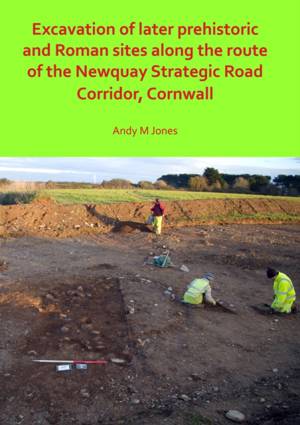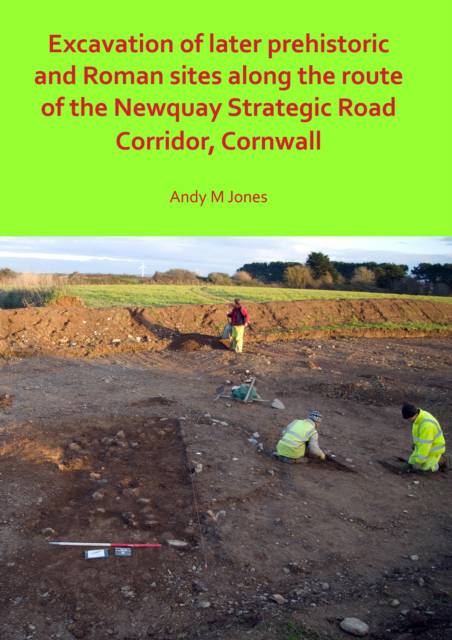
- Afhalen na 1 uur in een winkel met voorraad
- Gratis thuislevering in België vanaf € 30
- Ruim aanbod met 7 miljoen producten
- Afhalen na 1 uur in een winkel met voorraad
- Gratis thuislevering in België vanaf € 30
- Ruim aanbod met 7 miljoen producten
Zoeken
Excavation of Later Prehistoric and Roman Sites Along the Route of the Newquay Strategic Road Corridor, Cornwall
Andy M Jones
Paperback | Engels
€ 40,95
+ 81 punten
Omschrijving
During November and December 2014, Cornwall Archaeological Unit undertook a programme of archaeological excavation in advance of construction of a road corridor to the south of Newquay. Evidence for Middle Bronze Age occupation took the form of a hollow-set roundhouse; however, the majority of the excavated features have been dated to the Iron Age and Roman periods. The area was enclosed as fields associated with extensive settlement activity throughout the last centuries cal BC into the third century AD. The excavations revealed the character of settlement-related activity during the later prehistoric and Roman periods. The evidence strongly suggests growing intensification of agriculture, with ditched fields and enclosures appearing in the landscape from the later Iron Age and into the Roman period. The results shed light on later prehistoric and Roman practices involving the division of the landscape with ditched fields and enclosed buildings. Many of the structures and pits were found to be set within their own ring-ditched enclosures or hollows, and the field system ditches were in some instances marked by 'special' deposits. As has previously been demonstrated for Middle Bronze Age roundhouses, structures could be subject to formal abandonment processes. Gullies and hollows were deliberately infilled, so that they were no longer visible at surface. However, unlike the abandoned Bronze Age roundhouses, the later structures appear to have been flattened and not monumentalized. In other words, buildings could be both etched into and subsequently erased from the landscape and thereby forgotten. This volume takes the opportunity presented by investigations on the Newquay Strategic Road to discuss the complexity of the archaeology, review the evidence for 'special' deposits and explore evidence for the deliberate closure of buildings especially in later prehistoric and Roman period Cornwall. Finally, the possible motives which underlie these practices are considered. Includes contributions by Ryan S Smith, Dana Challinor, Julie Jones, Graeme Kirkham, Anna Lawson-Jones, Henrietta Quinnell and Roger Taylor.
Specificaties
Betrokkenen
- Auteur(s):
- Uitgeverij:
Inhoud
- Aantal bladzijden:
- 174
- Taal:
- Engels
Eigenschappen
- Productcode (EAN):
- 9781789691528
- Verschijningsdatum:
- 30/04/2019
- Uitvoering:
- Paperback
- Formaat:
- Trade paperback (VS)
- Afmetingen:
- 203 mm x 287 mm
- Gewicht:
- 453 g

Alleen bij Standaard Boekhandel
+ 81 punten op je klantenkaart van Standaard Boekhandel
Beoordelingen
We publiceren alleen reviews die voldoen aan de voorwaarden voor reviews. Bekijk onze voorwaarden voor reviews.








